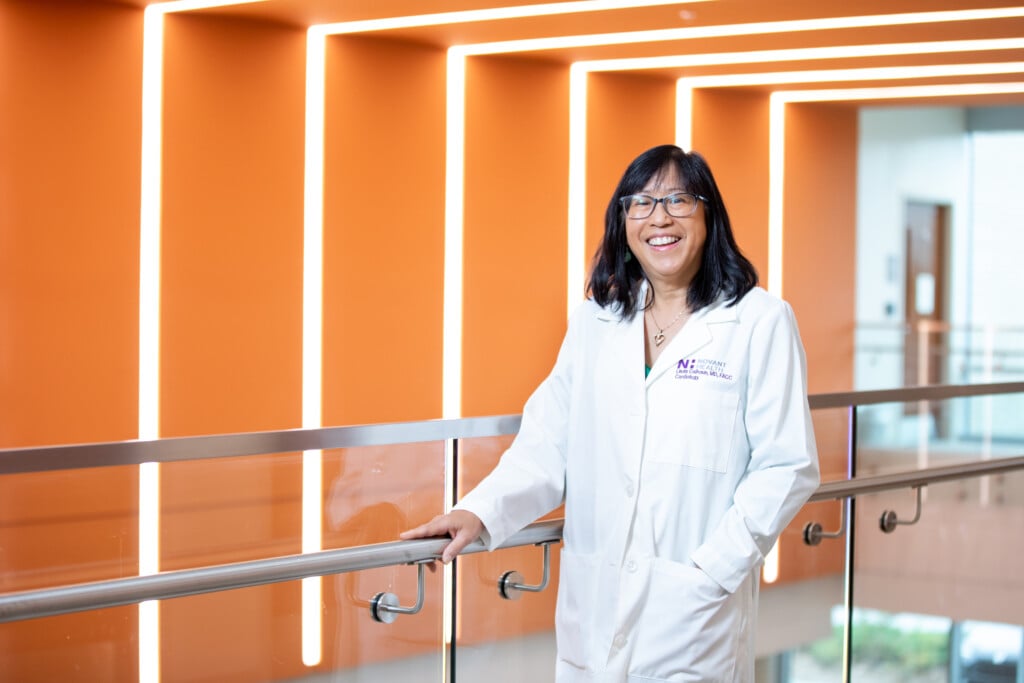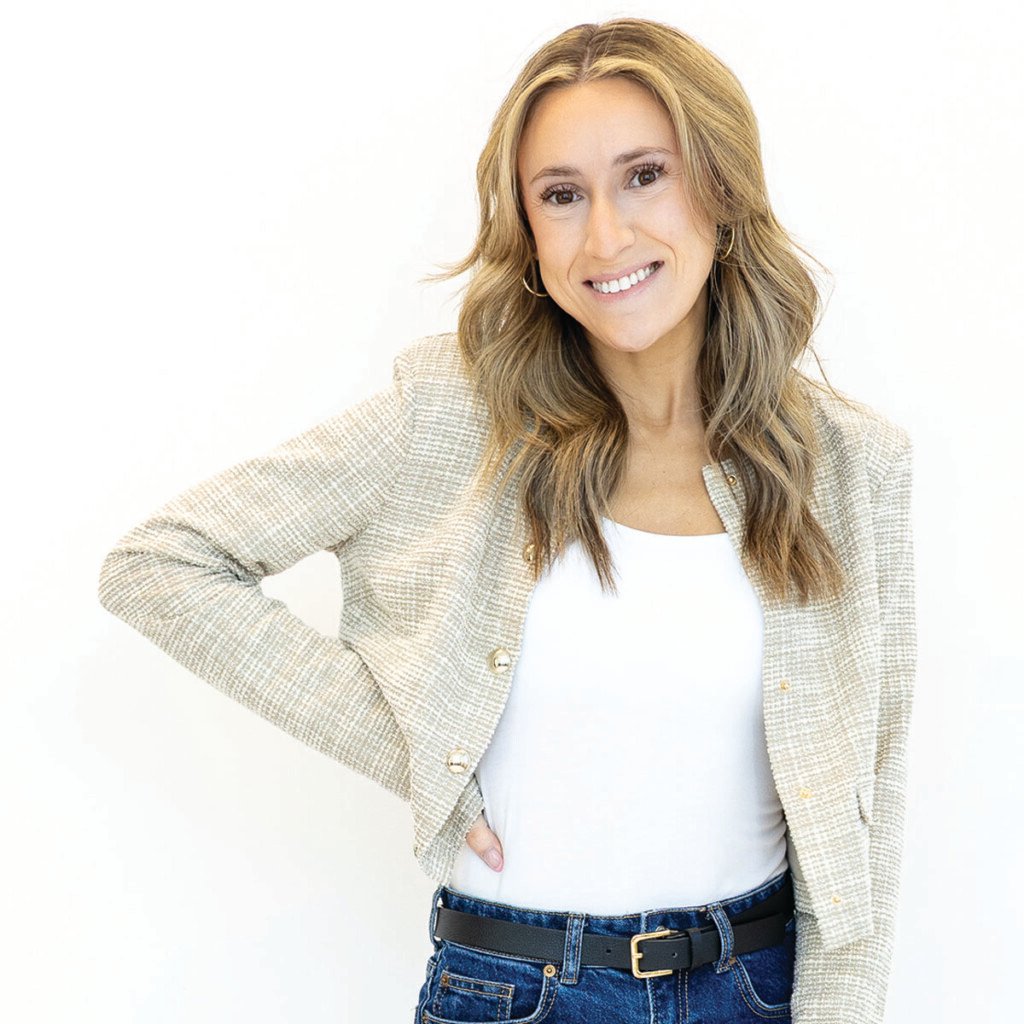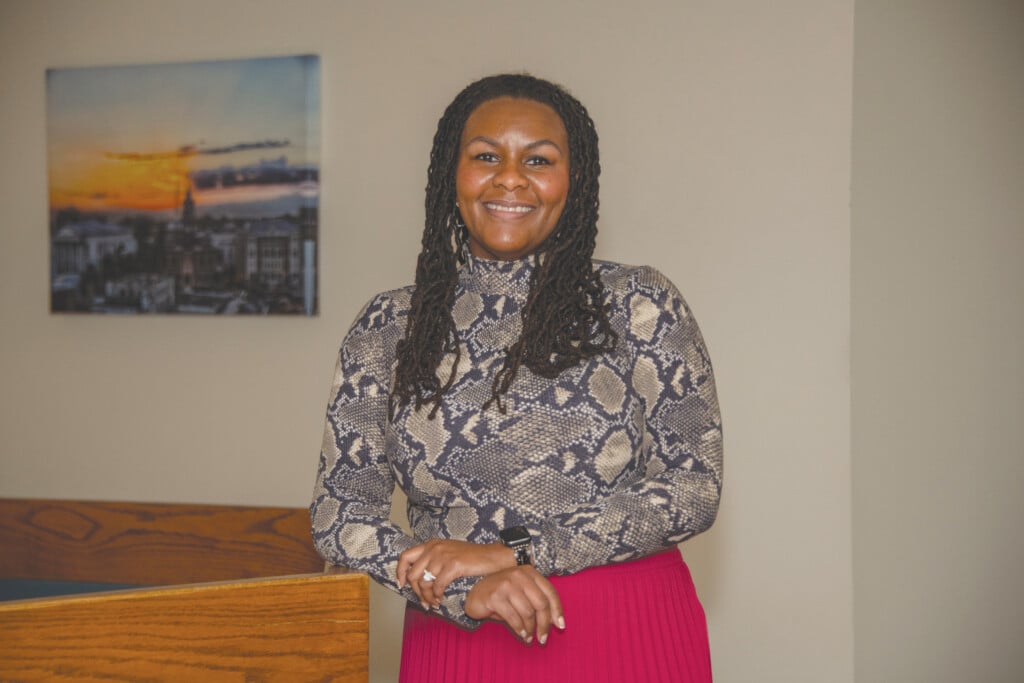Prepared for Perimenopause
Amy Hawkins helps women meet the changes of midlife
 AMY HAWKINS always knew she wanted to be a doctor. She witnessed her grandmother suffer and decline from severe chronic illness despite consistent medical treatment, and Hawkins herself struggled with health issues that conventional medical wasn’t helping. “I could see my future in my grandmother and I knew there must be another way,” she says.
AMY HAWKINS always knew she wanted to be a doctor. She witnessed her grandmother suffer and decline from severe chronic illness despite consistent medical treatment, and Hawkins herself struggled with health issues that conventional medical wasn’t helping. “I could see my future in my grandmother and I knew there must be another way,” she says.
Hawkins dug deeper, studying everything she could about women’s health, herbalism, and natural medicine. That led her to Bastyr University in Washington, where she obtained her doctorate in naturopathic medicine. Today, as a naturopathic doctor specializing in women’s health, Hawkins helps women navigate the major changes ushered in during the postpartum and perimenopausal periods of early adulthood and midlife.
“As a woman, women’s health is a natural specialty for me,” she says. “As a perimenopausal woman, I discussed my symptoms with my gynecologist, but it was a brief conversation. That was eye opening. I realized that women in this phase of life simply don’t have the support they need. These personal experiences inspired me to educate and empower women who are in this phase of life.” Hawkins is a mom to three children, grade school to college age, and understands the demands of raising a family and having a career.
WILMA had the opportunity to talk with Dr. Hawkins about perimenopause, including common symptoms and how increased awareness can help women thrive through this phase of life. Her answers below are lightly edited for length.
How is perimenopause similar to and different from menopause?
Menopause is defined as having no menstrual period for 12 months. The average age of menopause in the United States is 51, but the symptoms of perimenopause, the time leading up to that last period, have a wide range of onset, from 40 to 58, and for some women as early as mid 30s. The most common symptoms are vasomotor symptoms (hot flashes), fatigue, mood changes, insomnia, irregular menstrual cycles, weight gain, hair loss, changes in skin and hair texture, low libido, headaches, and musculoskeletal pain.
How has the medical community’s understanding of perimenopause shifted in recent years?
It’s expanding, but slowly. Most research is on menopause. Perimenopause is, by its very nature, characterized by irregularity and hormonal ups and downs. That makes it extremely difficult to study. As a result, perimenopausal women are underserved. Most women expect a dramatic transition and focus on menopause itself, expecting classic hot flashes because that’s what they’ve been told to expect. One misconception is that treatment is limited to hormone replacement therapy. Because the medical community isn’t actively providing education around perimenopause, that misunderstanding persists.
Why is it important to talk to a medical professional about symptoms?
No one needs to suffer. Understanding why you feel like you are on a crazy roller coaster is important. Maybe it’s fluctuation of hormones or maybe it’s other conditions that are also common with perimenopause. Either way, knowledge is power. Women deserve to be grounded and present, to enjoy life and family. Symptoms can be helped with optimal diet, proper nutrition, the right kind of physical activity, stress management, and herbal therapies.
How can women take a proactive approach to perimenopause health?
We are seeing a mindset shift: It’s becoming more acceptable to talk about women’s health issues with family, friends, and online. Women are comparing notes. As a culture, and especially in communities like ours, women are very interested in optimizing their health and staying strong and healthy into their golden years. This time in life is an opportunity to make decisions that set women up for optimal health, now and in the future, and to prevent issues like osteoporosis and cardiovascular disease. As a naturopathic doctor, I look upstream to prevent a negative experience and take a holistic approach to symptoms. You can be a woman, a mom, have a career, and go through this transition and still feel great.
What’s next for you?
As I continue to serve my clients, I’m also developing a group health perimenopause program to provide easily accessible education and support for a holistic approach to perimenopause. Women can take control of their health and advocate for themselves. Together we can change the conversation about this important time in every woman’s life.
Connect with Dr. Hawkins at drhawkinsnd.com or on Facebook and Instagram.
To view more of photographer Aris Harding’s work, go to arisharding.com.
Want more WILMA? Click here to sign up for our WILMA newsletters and announcements.



